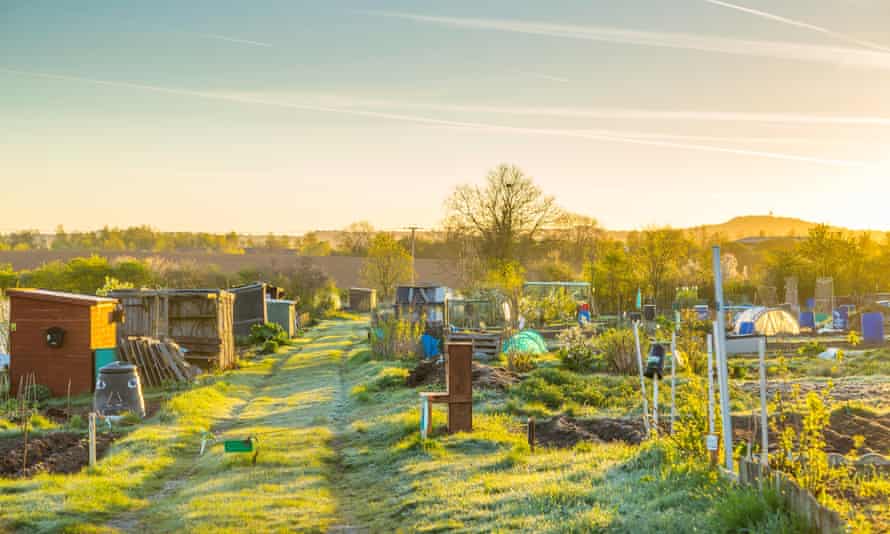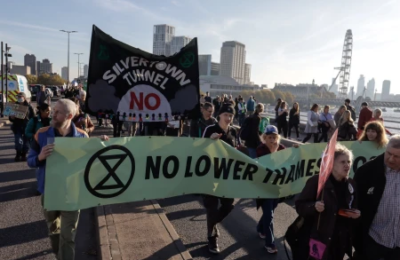This fascinating article in The Guardian points to a burgeoning movement of seed-sharing and exchanging and makes the case for public ownership of seed. Certainly something which should be discussed widely in the Labour and environmental movement.
https://www.theguardian.com/uk-news/2020/dec/28/seed-saving-movement-calls-for-seeds-to-be-publicly-owned
Covid has made people see how the food system is dominated by large corporations, say campaigners

The pandemic encouraged an interest in allotments and seed saving. Photograph: Bill Allsopp/Alamy Stock Photo
Seeds need to be brought back into public ownership, rather than belonging to a small group of agrochemical companies, say campaigners, after a year in which seed-swapping and saving has reached new heights of popularity.
From March onwards, when the pandemic hit the UK, seed producers and seed banks across the country were overwhelmed with demand. Organisations such as the Seed Cooperative, Vital Seeds and Irish Seed Savers saw a sharp surge in orders, 600% in some cases.
David Price, managing director of the Seed Cooperative, says this rise in sales could be attributed to new and returning small-scale growers responding to empty supermarket shelves and spending more time in green spaces. And commercial growers were also inundated with orders for organic, locally produced food.
This has in turn drawn attention to the seed saving movement, which has been quietly growing in the UK for some time. Made up of growers of all types – from farms, small allotments, back gardens and even school playgrounds – these individuals and groups are linked through formal and informal networks. Swaps can simply mean a friend exchanging some tomato seeds for radishes, or participating in larger events such as Seedy Sunday, the UK’s biggest and longest running seed swap held in Brighton every February.
Many British consumers feel disconnected from the processes of food production, says Megan Perry of the Sustainable Food Trust. But, argues Helene Schulze, who co-directs London Freedom Seedbank and also works on the Seed Sovereignty Programme of the UK and Ireland, seed saving allows everyone to be involved in the food system. “People crave connection,” says Price. “They want connection with other people and connection with the planet, and growing and saving seed is a way of getting both.”
Seed saving can also be seen as a means to address the sharp decline in vegetable varieties and biodiversity loss. Since the 1900s, we have lost 75% of genetic diversity in plants globally, according to the UN Food and Agricultural Organization, and in the last century, 93% of our unique seed varieties have disappeared. This decline is connected to the rise of industrial agriculture and the big boom in agrochemicals. By returning to traditional farming methods of saving OP seeds, crops are richly diverse, well adapted to the soil and local climate, and more resilient to climate change.
The growth in interest has also raised awareness of the idea of seed sovereignty, defined as a grower’s right to breed and exchange diverse, open source seeds, which can be saved and are not patented, genetically modified or owned by one of the four agrochemical companies that control more than 60% of global seed trade. “Covid made people really understand how our food system is dominated by a few large corporations, and this has put a focus on seed sovereignty,” says Schulze.
The global rise of seed activism is largely in response to the intensification of corporate seed enclosures and to the loss of agrobiodiversity, according to research by Karine Peschard, a PostDoc at the Graduate Institute (IHEID). Many seed savers are motivated by this idea of dismantling the increasing privatisation of seeds, explains Peschard, by drawing attention to the negative impact of such high levels of concentration. Less than 50 years ago, most of the world enjoyed food that came from entirely open-pollinated (OP) seed varieties, which could be saved for future crops. Much of the seed sold now by the large companies are, in contrast, GM or F1 hybrid seeds. These cannot be saved for use in following years because they are genetically unstable and are protected by seed and patent laws, meaning most farmers are tied to chains of dependency.
Campaigners at several organisations including Open Source Seeds and the Campaign for Seed Sovereignty are calling for seeds to be brought back into common and collective ownership. They argue that something as universal as food crops should belong to everyone, not a small group of agrochemical companies. “If you own the seeds you own the food system,” says Schulze. “Access to OP seeds is the cornerstone of food citizenship because it creates non-market access to growing. I want all local communities or regions to have their own seed bank, so everyone knows exactly where to get free seed.”
And if the level of interest in seeds remains consistent, it could change the UK’s food culture, says Peter Brinch, founder of the Open Pollinated Seeds Initiative. “If you’re just buying off the shelf you have no idea about the journey of that broccoli you just bought,” he says. “But once you have a seed packet in your hands, you’ve got something real, and you start to ask questions about your food. You challenge the supermarkets who demand that all veg looks the same.”
• This article was amended on 30 December 2020 to correct a mention of the “US” Food and Agriculture Organization. The FAO is a UN agency.

